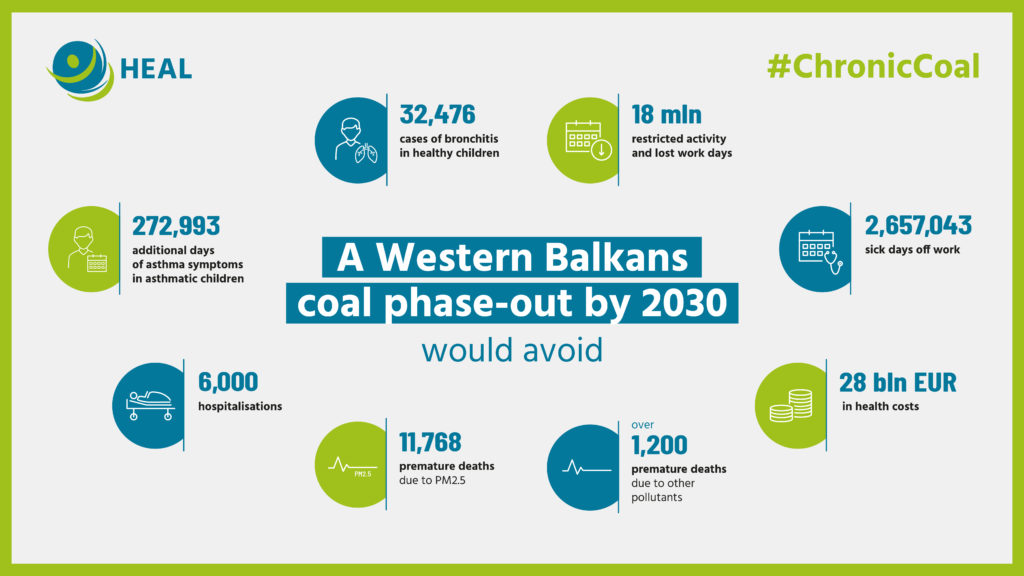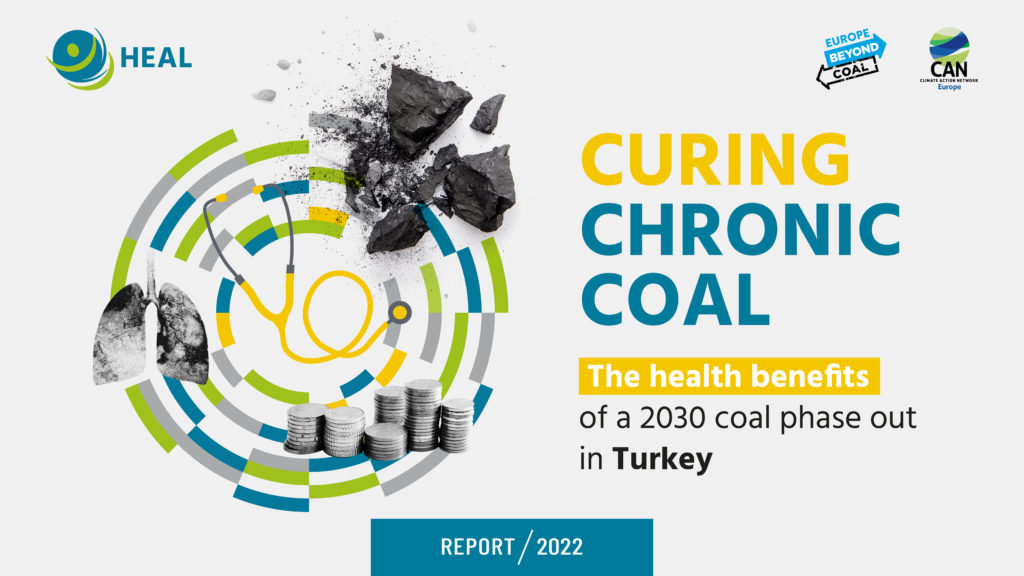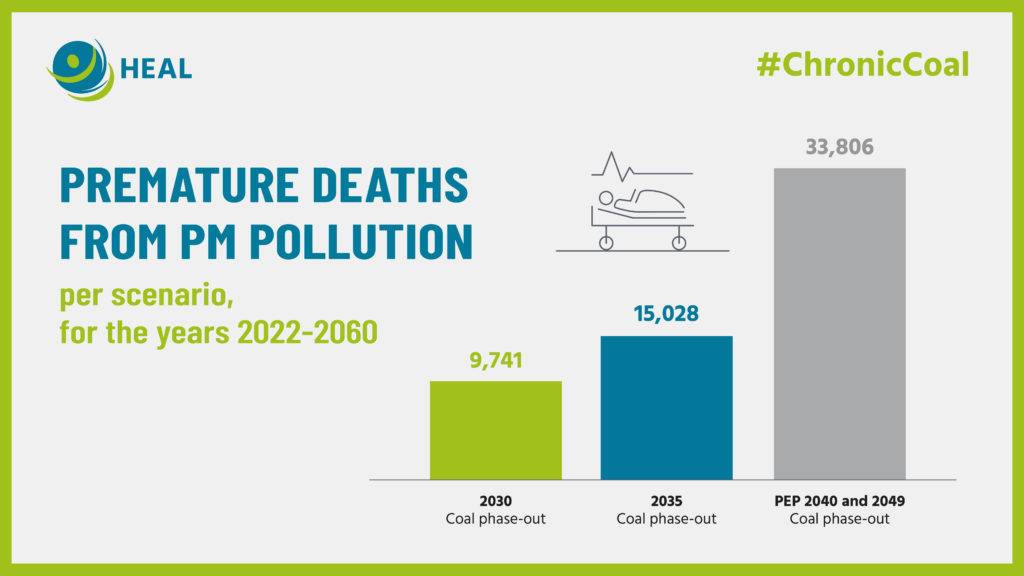The REACH legislation sets out how the European Union registers, evaluates, authorises and restricts chemicals. The sorely needed overhaul of this juggernaut of EU chemicals legislation is an opportunity to strengthen its effectiveness in protecting our health and the environment through better and earlier identification of hazardous chemicals.
Coal powered energy production is slowly but surely losing its power across the European Union. However, in some EU countries like Poland or countries in the wider European region, coal is still the dominant mode of electricity generation, as in the Western Balkans, or up for an increase, as in the case of Turkey.
Coal power generation is a chronic pollution for the environment, the climate and people’s health in the vicinity and far away from plants. HEAL focuses advocacy, knowledge sharing and engagement across the European region, and especially on the Western Balkans and Turkey. We also continue to advocate for a swift coal phase out in Poland, as the only country in the EU missing such a date.
Our three-part series ‘Curing Chronic Coal’ showcases the tremendous health benefits that could be achieved in Poland, Turkey and the Western Balkans region by phasing out coal sooner rather than later.
Published in 2022, ‘Curing chronic coal – How an early coal power phase out in the Western Balkan region can save lives, improve health and strengthen the economy’ (EN, SB, ALB) finds that phasing out coal power by 2030 would, vis-a-vis a coal phase-out in 2050, avoid
- 272,993 additional days of asthma symptoms in asthmatic children
- 32,476 cases of bronchitis in healthy children
- 18 million restricted activity and lost work days
- 2,657,043 sick days off work
- 6,000 hospitalisations
- 11,768 premature deaths due to PM2.5 pollution
- over 1,200 premature deaths due to other pollutants
- 28 billion EUR in health costs

This was followed by an analysis on Turkey (EN, TR) showing that phasing out coal power in Turkey earlier (by 2030) rather than later (by 2050) would avoid
- 102,601 premature deaths – almost 20 times more than deaths from traffic accidents in Turkey per year
- 30,975 cases of preterm births
- 67,108 new cases of chronic bronchitis in adults
- 114,683 hospital admissions
- 3,772,502 days with asthma and bronchitis symptoms in asthmatic children
- 27,606,746 lost working days
- 231,333,351 sickness days
- 419,835 cases of bronchitis in children
Importantly, avoiding these health impacts would also help cut costs from air pollution by up to 194 billion EUR or up to 3.1 trillion Turkish Lira.

In early 2023, the ‘Curing Chronic Coal Poland’ report (EN, PL) followed, highlighting that ending coal power generation by 2030 would, vis-a-vis a coal phase-out in 2049, avoid among other
- 494,399 additional days of asthma symptoms in asthmatic children
- 57,038 cases of bronchitis in healthy children
- 38,5 million restricted activity and lost work days
- 35,700 hospitalisations
- 24,000 premature deaths due to PM2.5 pollution only

This latest series on the health benefits of phasing out coal power swiftly, builds on HEAL’s Chronic Coal Pollution series (2019-2022) and the approach and work carried out on the Unpaid Health Bill and the Dark Cloud.
In 2019, we published a report on the chronic coal pollution in the Western Balkans, demonstrating that the sixteen outdated coal power plants in the Western Balkans are a public health and economic liability for the whole of Europe, with people in the EU bearing the majority of the health impacts and costs (EN, RO, SB). The report shows how the incredible amount of air pollution emitted from Western Balkan coal power plants every year is responsible for an estimated 3,900 premature deaths, 8,500 cases of bronchitis in children and other chronic illnesses. The health consequences these plants cause adds up to lost productivity and health costs of up to EUR 11.5 billion. That is no surprise, as in 2016 alone, the 16 Western Balkan coal power plants spewed out as much sulphur dioxide (SO2) pollution as the entire fleet of the EU’s 250 coal power plants. Just one power plant, Ugljevik in Bosnia and Herzegovina, emitted more SO2 than all German coal power plants put together. And levels for particulate matter and nitrogen oxides are equally alarming.
In 2020, we followed up with a briefing putting a spotlight on Serbia alone, to highlight two coal power plants, Kostolac and Nikola Tesla for their emissions of sulphur dioxide (SO2 ) having gone up in the last decade, while emissions of particulate matter (PM) have fallen by half. Even with PM pollution going down those two plants enormous amounts of SO2 and PM pollutants are being released into the air, 35 and 14 times more than the emissions of the average EU plant. The pollution coming from Nikola Tesla and Kostolac power plants alone causes 1,940 premature deaths in the EU, the Western Balkans and beyond, 4,000 cases of bronchitis in children, 1,000 cases of bronchitis in adults, 1,500 hospital admissions of patients due to respiratory or cardiovascular symptoms and annual health costs of up to 4.4 billion EUR.
In 2021, HEAL explored the Turkish angle of chronic coal pollution – with the major obstacle of the government not releasing transparent and informative data. Turkey is set to double its current coal capacity of 19GW, with thirty new coal power plants in the pipeline (permitted, announced or at pre-permit stage), totalling 33 GW. The HEAL analysis shows that the health impacts of coal pollution in Turkey currently generate economic costs of up to 10.9 billion EUR (or up to 99.37 billion Turkish Lira) annually, which is equivalent to up to 27% of its annual health expenditure. The 28 coal plants operating in 2019 caused a significant health burden, with nearly 5,000 premature deaths, 26,500 cases of bronchitis in children, 3,000 preterm births, and over 1,4 million workdays lost to illness.
In 2022, the work on Turkey’s coal pollution was extended, with an analysis on cumulative health effects, highlighting that the country’s decades-long dependency on coal power generation has led to unacceptably high health impacts and costs: From 1965-2020, coal power generation in Turkey has led to almost 200.000 premature deaths, sixty-two million lost working days, eleven million hospital admissions and other health impacts, with a cost of up to 320 billion EUR – and with plans to double the current coal capacity in the next years, the health burden is set to climb even higher.
The assessment also includes zooming into 4 coal pollution hotspots Zonguldak, Muğla, Çanakkale cities, İskenderun Bay. The health burden caused by thermal power plants only in Zonguldak, Çanakkale, Muğla and Iskenderun Bay adds up to 40% of Turkey’s total. The thermal power plants in Muğla are estimated to cause the highest number of premature deaths in Turkey.


